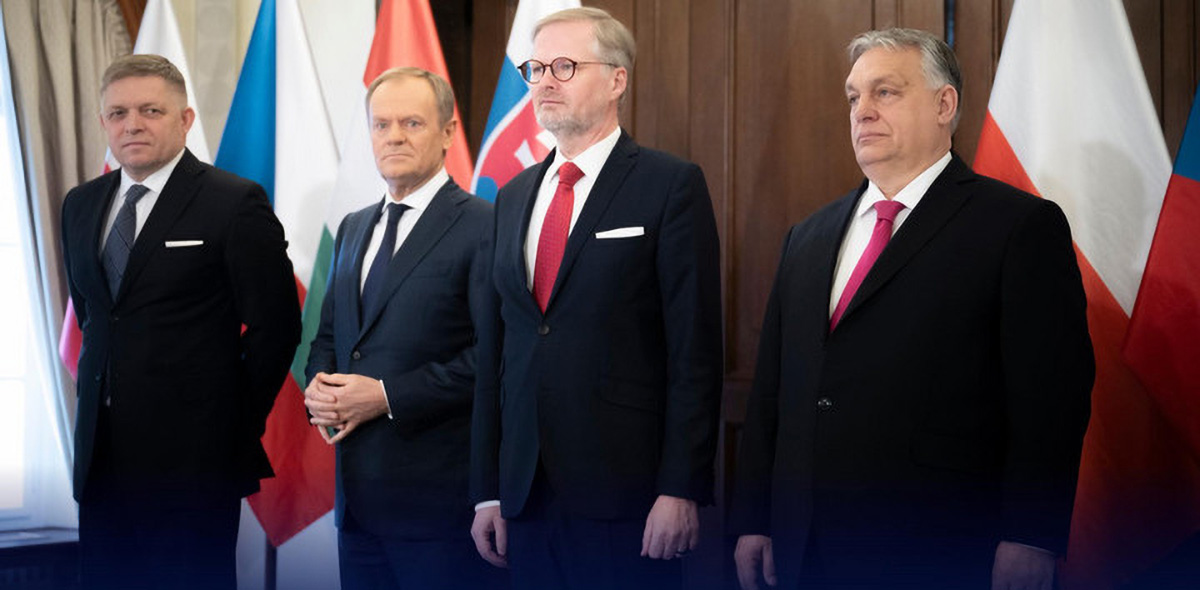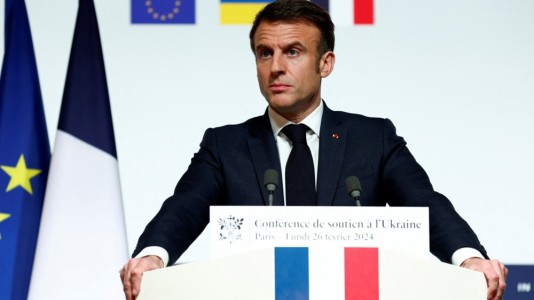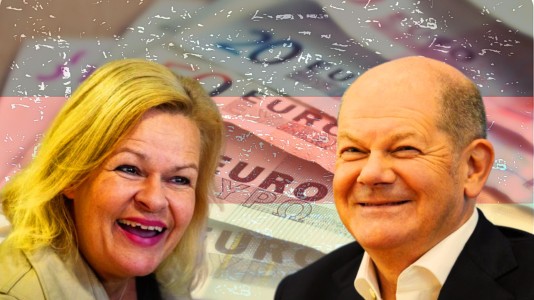Although the war in Ukraine has divided the Visegrád Four (V4) countries — Czechia, Hungary, Poland and Slovakia — in terms of arms and military aid, issues such as migration control and protecting national agriculture remain among the many topics that still make the cooperation worthwhile, the four countries’ prime ministers said at a Tuesday meeting in Prague.
“Today’s meeting convinced me that Visegrád is alive, Visegrád is important. We can acknowledge our differences with due respect, even if we dispute each other’s positions. And we will continue to strengthen cooperation on common issues. Hungary is ready for this,” said Hungarian Prime Minister Viktor Orbán.
The main dividing line is the four countries’ approach to helping Ukraine in its war against Russia, but even there some commonalities exist.
“First of all, we agree that Russia’s attack was a severe violation of international law. We also agree that Ukraine needs help and that we should help Ukraine. That is the right thing to do. From Hungary’s perspective, there is also a unique aspect here. It is worth mentioning that Hungary does not want a common border with Russia again,” Orbán said.
“We have had a history in which the Soviet Union and Hungary shared a border. We have bad memories of that period. So, the most important basic principle of Hungarian national security is that there should be an entity to the east of us that is located between Russia and Hungary. Therefore, we are also helping Ukraine because of Hungarian national interests. The difference of opinion between us is how to help Ukraine in the best way. The Hungarian position is clear: We are not sending weapons to Ukraine,” he added.
Orbán’s words were echoed by Slovak Prime Minister Robert Fico, who said “I do not believe in a military solution to the conflict in Ukraine. I hope for an immediate ceasefire. I believe in peaceful negotiations. I may have other views on other things. But what is true is that in a few years, this war will be over, and maybe we will not be here anymore, but the V4 format remains extremely important.”
Fico and Orbán are clearing in one camp on the issue of Russia, and have been calling for an immediate ceasefire, while Tusk and Czech Prime Minister Peter Fiala believe the fight must go on against Russia, with Fiala known especially as a hawk on the issue.
According to Hungarian news outlet Magyar Hirlap, Polish Prime Minister Donald Tusk highlighted one of the main areas of ongoing cooperation between the four countries.
“As you know, I am very committed to helping Ukraine, but on the other hand, we must also take care of the interests of large segments of society and our economies. Here, we have a unified view that we need to stand together in Brussels to ensure that aid to Ukraine is not at the same time accompanied by losses for our economy, particularly for our agriculture,” Tusk said.
In addition to the common points detailed above, the four prime ministers also agreed that they categorically refuse to send troops to Ukraine.
Orbán said that the question of who will win the war is a trap because in his view it is undecidable. He also called the position that one of the parties should be declared guilty in advance a bad one because it leads nowhere. “The question of war guilt must be decided after the war,” Orbán said, adding that “I propose strategic calm to everyone in this matter.”






